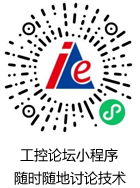LonWorks: 一个老故事 点击:1819 | 回复:1
发表于:2002-07-12 13:40:00
楼主
If Your Toaster Had a Brain
Echelon pushes chips for everything from trains to beer taps.
By Art Kleiner
Back in 1983, when A. C. (Mike) Markkula was Apple"s chairman, he and Steve Jobs recruited John Sculley to head the company. Markkula volunteered to educate the new chief executive about the industry, and drew a chart showing how every time the price of computers dropped 10 percent, sales multiplied tenfold.
Personal computer prices were approaching $1,000, and 10 times as many personal computers were selling as when workstations had cost $10,000. "That is interesting," Sculley said. "But what happens when they hit $10?"
Markkula said he didnot know. "There will probably be some clever invention that will make somebody a lot of money."
Today, Markkula is trying to make his own prophecy come true, through a new company called Echelon. Based in Palo Alto, Calif., Echelon makes what it calls "neuron chips" - actually board-like modules about the size of index cards, comprised of three microprocessors each. Each board is one small component of giant computers that will, should Markkula"s vision turn real, surround us someday.
"If you put 1,000 intelligent, distributed nodes inside a building, and you add up all their computing power and memory," Markkula said, "you end up living inside the equivalent of a very powerful central computer. But it would be impossible for a single computer to do as many things at once as this network could do."
Echelon actually represents the third stage in Markkula"s career. A dapper man in his 50s who slightly resembles Jimmy Carter, he became a millionaire marketing chips for Fairchild and Intel in the 1970s. After retiring in his mid-30s, he was known in Silicon Valley as "the third Steve," the man who bankrolled Jobs and Steve Wozniak to help found Apple (and who, among other things, persuaded Wozniak that floppy disks were worth using).
In the mid-1980s, while trying to wire his house for a "smart" lighting and entertainment system, Markkula remembered his remark to Sculley about the market-reach of $10 computers. Commanding devices around the home had been a longstanding dream, but the results always turned out half-baked and cumbersome. A digital machine couldnot easily manipulate the analog knob of a toaster or TV.
But if you attached a $10 digital controller to that appliance, Markkula reasoned, and made it as programmable and customizable as a personal computer, the difficulties might evaporate - especially if the chips could cue each other over power lines, radio waves, telephone wire, or infrared beams. He called the chips "neurons" - not after neural networks, which they vaguely resemble, but after the independently active, inter-related neurons of the human brain.
This year, products containing the chips are just beginning to appear commercially. Their implications go far beyond merely automating homes. Echelon"s tools, in fact, may never automate many toasters, but they could reshape industrial society.
"Among the makers of microcontrollers, Echelon has the broadest potential influence," said David Mason, who follows the future of information technology at Northeast Consulting Resources in Boston. "They have a completely organized view of their chips as not just an isolated device, but a brand name for an idea of fitting them together. A house is just one example. People might happily buy into one use for the chips, and that will be a Trojan Horse for the whole Echelon system."
A demonstration of the neuron-chip system begins, in fact, with Trojan Horse-like simplicity. You twirl an ordinary dimmer switch, and a light bulb, mounted nearby on the same panel, brightens and dims. Then you reach beneath the dimmer switch and tap a small button. Now, when you turn the dial, two lamps brighten and dim. With more taps, you add another switch to the circuit; now both switches adjust the same lamp"s brightness. Then you rip the
发表于:2002-07-12 13:40:00
1楼
Echelon"s system accomplishes the feat by attaching the dimmer (a resistor circuit) inside the lamp, with a neuron chip controlling it. The light switch merely sends a signal through the power line, telling the lamp"s neuron chip how much to brighten or dim. The lamp, like every appliance in an Echelon system, is programmed to recognize its own eight-bit binary code; when a transmission carrying its address passes by, it snags the instruction and responds.
Echelon doesnot make the lamps or switches. It provides the infrastructure which connects them. It sells boards (with chips made by Toshiba and Motorola) to makers of appliances and other "smart" hardware. Developers also buy the kits for programming the chips (by attaching them to an IBM PC or clone), and the network interfaces, which link them across the developer"s choice of power lines, radio waves, telephone wire, or infrared beams.
Notwithstanding industry skepticism, Echelon has managed to line up some of the largest consumer and building companies as customers, including AT&T, Honeywell, and the Swiss contracting giant Schlumberger. Like Apple, Echelon sends out "evangelists" to third-party developers to entice them into building with its chips (which cost $10 now, and are supposed to drop to $2 by 1995 - not much to add to the price of a crockpot or alarm system).
But where Apple sought out freewheeling software designers, Echelon must cultivate a much more staid group: lighting manufacturers, security companies, and consumer electronics firms. Many demur because the home appliance industry has its own rival system, called CEBus (for "Consumer Electronics Bus"). Like MS-DOS in Apple"s early days, CEBus doesnot quite match the power or inventiveness of the California upstart, but it has the blessing of the establishment. The CEBus also has a big plus - the ability to carry video images - and a big minus - it doesnot quite exist yet.
Because of the CEBus competition, Echelon is more likely to appear first in industrial circles. Locomotives and factory assembly lines, for instance, can have their massive (and expensive) electrical cable harnesses replaced with a single loop of wire exchanging messages between neuron chips connected to hundreds of devices within the machine. Eventually, autos might be built around Echelon systems; drivers could reconfigure their dashboards when the mood struck, as if they were setting new preferences in their computer software. ("I would like my mileage in kilometers today - or how about in leagues?")
Markkula, who owns a cattle ranch, talks about strapping neuron chips to his cows hooves to check their weights from afar, or find a particular calf by triangulating a signal to a homing device. Small children, he muses, might carry similar chips to help their parents find them in a crowd. Echelon"s chief executive officer, Ken Oshman (formerly of the Rolm telephone system company), talks of sensors on a race car that instantly download performance data into diagnostic computers as it rolls into a pit stop.
All sorts of innovations seem dazzlingly possible - light rail, smart factories, and ultimately homes as charming and responsive as those in Toon Town, in which everything you touch, from the doorbell to the commode, can have a customizable personality.
Today, prototype neuron chips exist in Amtrak trains, shuffling the destination signs when cars are recoupled. In a Florida parking lot, they prompt lights to lead people as they walk to their cars. The French government is installing an Echelon system for apartment buildings; it can convert messages from Minitel (a French online system) to voice-mail and read them through a speaker in the wall.
But the most commercially successful system so far is probably the liquor-dispensing apparatus in a casino in Loughlin, Nevada. Rows of bottles sit behind the bar, pointed downwards with tubes coming out of them. When the bartender rings up a sale, one chip calculates the change, another updates the inventory list, and a third controls the flow of liquor into the glass. Why the investment? To keep bartenders from pouring extra-heavy drinks.
If Echelon"s world follows that pattern, it will be pitiless to rule- benders - thousands of chips implanted in everything from fireplugs to mailboxes could keep tabs on the people around them. Like many technologies, Echelon"s systems will have to find a way to guarantee the privacy of people who use them. They will also have to safeguard against intrusion - which they now accomplish with randomly generated authentication codes and passwords, much like the PIN codes of credit cards. As Markkula said, "You donot want anybody to be able to turn on your garbage disposal while your arm is in there."
热门招聘
相关主题
- 现场总线学习入门
 [1555]
[1555] - 讨论:征集金点子
 [1842]
[1842] - netlink挑战西门子传统通讯方...
 [1357]
[1357] - 察看profibus波形
 [2056]
[2056] - 现场总线书籍
 [4214]
[4214] - 转载:现场总线智能仪表功能模...
 [3030]
[3030] - 谈现场总线技术国家自主化的...
 [1932]
[1932] - 基金会现场总线在大型项目中...
 [1507]
[1507] - 232转485的通讯问题
 [1693]
[1693] - 基于LNS和COM的LonWorks网络...
 [5476]
[5476]

官方公众号

智造工程师
-

 客服
客服

-

 小程序
小程序

-

 公众号
公众号

















 工控网智造工程师好文精选
工控网智造工程师好文精选
